
Kiril Avramov is an assistant professor in the Slavic and Eurasian Studies Department, a fellow at the Intelligence Studies Project, and former co-director of the Global Disinformation Lab at UT. Previously, he was the acting vice-rector for international relations and research and an assistant professor of political science at the New Bulgarian University in Bulgaria. He taught at the University of Sofia until 2005, then served as director of the international consultancy and research institute Political Capital in Bulgaria and as director for international relations at the firm’s headquarters in Hungary. He came to UT as a Fulbright Senior Visiting Research Scholar at the Center for Russian, East European, and Eurasian Studies. His research focuses on non-western political warfare, Soviet and Russian propaganda and psychological operations, elite and mass cognitive resilience, and Soviet and East European civilian and military intelligence services.

Daniel Brinks is a professor of Government and of Law. He is the chair of UT’s Government Department and is active in the fields of Comparative Politics and Public Law. He is a senior researcher and global scholar of the Centre on Law and Social Transformation, a joint project of the University of Bergen and Christian Michelsen Institute, in Norway. His research focuses on the role of the law and courts in supporting or extending human rights and many of the basic rights associated with democracy, with a primary regional interest in Latin America. His recent book, written with Abby Blass, The DNA of Constitutional Justice in Latin America: Politics, Governance and Judicial Design, examines constitutional change in Latin America since 1975, focusing especially on judicial institutions and constitutional review. The book was awarded the C. Herman Pritchett Award for Best Book on Law and Courts in 2018 by the Law and Courts Section of the APSA.
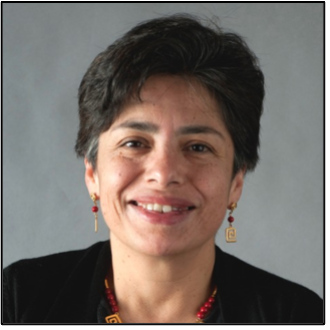
Adela Pineda Franco is the Lozano Long Endowed Professor in Latin American Literary and Cultural Studies and the director of the Teresa Lozano Long Institute of Latin American Studies (LLILAS) at the University of Texas at Austin. Prior to joining UT, she was Professor of Latin American Literature and Film at Boston University, where she also founded the Center of Latin American Studies. Her scholarly work situates the study of specific literary and cinematic phenomena within transnational contexts and comparative, interdisciplinary frameworks, addressing the relationships between culture, politics, intellectual thought, and technology. She has authored and co-edited numerous books, among them the award-winning Steinbeck y México. Una mirada cinematográfica en la era de la hegemonía estadounidense (2018). She is also well-known for her research on the international significance of the cultures of the Mexican Revolution.
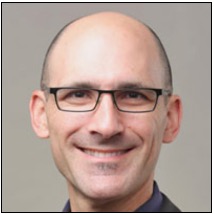
Kenneth Greene is an associate professor in UT’s Government Department. His research focuses on authoritarian regimes as well as elections and voting behavior in new democracies, with a particular emphasis on Mexico. His first book, Why Dominant Parties Lose: Mexico’s Democratization in Comparative Perspective (2007), argues that economic privatization threatens the hyper-incumbency advantages dominant parties derive from politicizing public resources. This project and related papers won the 2008 Best Book Award and the 2007 and 2015 Best Paper Awards from the Comparative Democratization Section of the American Political Science Association. His current research centers on vote buying and the quality of elections, arguing that democratic competition undermines political machines’ ability to buy support. He teaches on research methods, political parties, Mexico’s politics, and U.S.-Mexico relations.
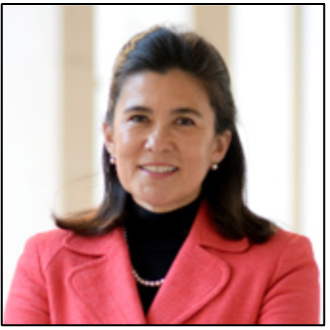
Wendy Hunter is a professor in UT’s Government Department. She studies Comparative Politics, with an emphasis on Latin American affairs. She has done in depth work on the military in Brazil and the Southern Cone, as well as research on social policy issues in Latin America, with special attention to the politics of education and health reform. She has also published a book on the Workers’ Party of Brazil. She currently works on issues concerning identity documentation in the developing world. She is the author of The Transformation of the Workers’ Party in Brazil, 1989–2009 (Cambridge University Press, 2010) and Eroding Military Influence in Brazil: Politicians against Soldiers (University of North Carolina Press, 1997), and has published articles in Comparative Politics, Comparative Political Studies, Political Science Quarterly, International Studies Quarterly, the American Political Science Review, the American Journal of Political Science, and World Politics.
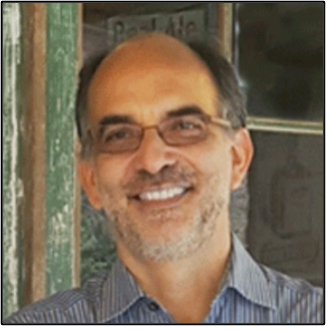
Raúl Madrid is a professor in UT’s Government Department and an affiliate of the Teresa Lozano Long Institute for Latin American Studies and the Center for Mexican-American Studies. He is also the faculty undergraduate adviser for the Government Department. He received his BA from Yale University and his MA and PhD from Stanford University. Before entering graduate school, he served as a Peace Corps volunteer in Costa Rica and as a foreign affairs analyst for a not-for-profit research organization in Washington, DC. He is currently serving as co-chair of the College Board’s Comparative Government and Politics Development Committee, which makes up the Advanced Placement exams in comparative politics. He specializes in Latin American politics, democracy studies, comparative ethnic politics, and comparative social policy, and he is currently working on a book on the origins of democracy in Latin America.

Michael Mosser is the director of UT’s Center for European Studies and an associate professor of instruction with a joint appointment in the Government Department and the International Relations and Global Studies program. He is a distinguished scholar in the Robert Strauss Center for International Security and Law and was the executive director of the Global Disinformation Lab from 2022 to 2024. He teaches courses in European and international security, European environmental policy, comparative and European politics, international organizations, and foreign policy analysis. He was the inaugural faculty advisor for UT’s Peace Corps Prep program and served as a faculty liaison to the US Department of State’s Diplomacy Lab program. He has won multiple awards for his teaching at UT, most notably being selected as a member of the 2021 Texas Ten by the Texas Exes and the 2016 Raymond Dickson Centennial Endowed Teaching Fellowship.

Mary Neuburger is a professor in UT’s History Department. She is also the director of UT’s Center for Russian, East European, and Eurasian Studies and the chair of the Slavic and Eurasian Studies Department. She is the author of numerous articles and three books on Bulgarian and East European history and co-editor of the Journal of Contemporary History. She teaches on conflict and coexistence in Eastern Europe, Communism and the Cold War in Eastern Europe, Russian and Eurasian studies, Islam and the West, history and memory in the former Yugoslavia, minorities in Eastern Europe, and cuisine and culture in East Central Europe, among other topics on the region. Her research focus is on modern Eastern Europe with a specialization in Southeastern Europe. Her research interests include urban culture, consumption, commodity exchange, and the history of truth at the intersection of science and religion.

Catherine Weaver is an associate professor at UT’s LBJ School of Public Affairs. She is a distinguished scholar and founder of the Next Generation Scholars Program at the Robert Strauss Center for International Security and Law. She serves on the UT Faculty Council and previously served as chair of Graduate Assembly, member of the Faculty Council Executive Committee, and chair of the President’s Award for Global Learning Steering Committee. She previously served as LBJ’s associate dean for students, associate dean for academics, and graduate advisor for the PhD and MGPS programs. She currently co-directs (with Daniel Nielson) Innovations for Peace and Development, an interdisciplinary research lab devoted to alleviating global poverty and peacebuilding. Her research interests focus on transparency in international development aid, reforming global economic governance, and the politics of data.
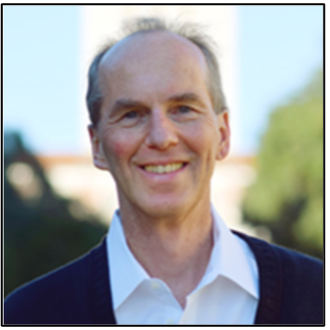
Kurt Weyland is the Mike Hogg Professor in Liberal Arts in UT’s Government Department. He focuses on democratization and authoritarian rule, on social policy and policy diffusion, and on populism in Latin America and Europe. He has drawn on a range of theoretical and methodological approaches, including insights from cognitive psychology, and has done extensive field research in Argentina, Bolivia, Brazil, Chile, Costa Rica, Peru, and Venezuela. After receiving a Staatsexamen from Johannes-Gutenberg Universitat Mainz, a MA from UT, and a PhD from Stanford University, he taught for ten years at Vanderbilt University and joined UT in 2001. He has received research support from the SSRC and NEH and was a fellow at the Woodrow Wilson Center in Washington, DC, and at the Kellogg Institute at the University of Notre Dame. From 2001 to 2004, he served as Associate Editor of the Latin American Research Review.